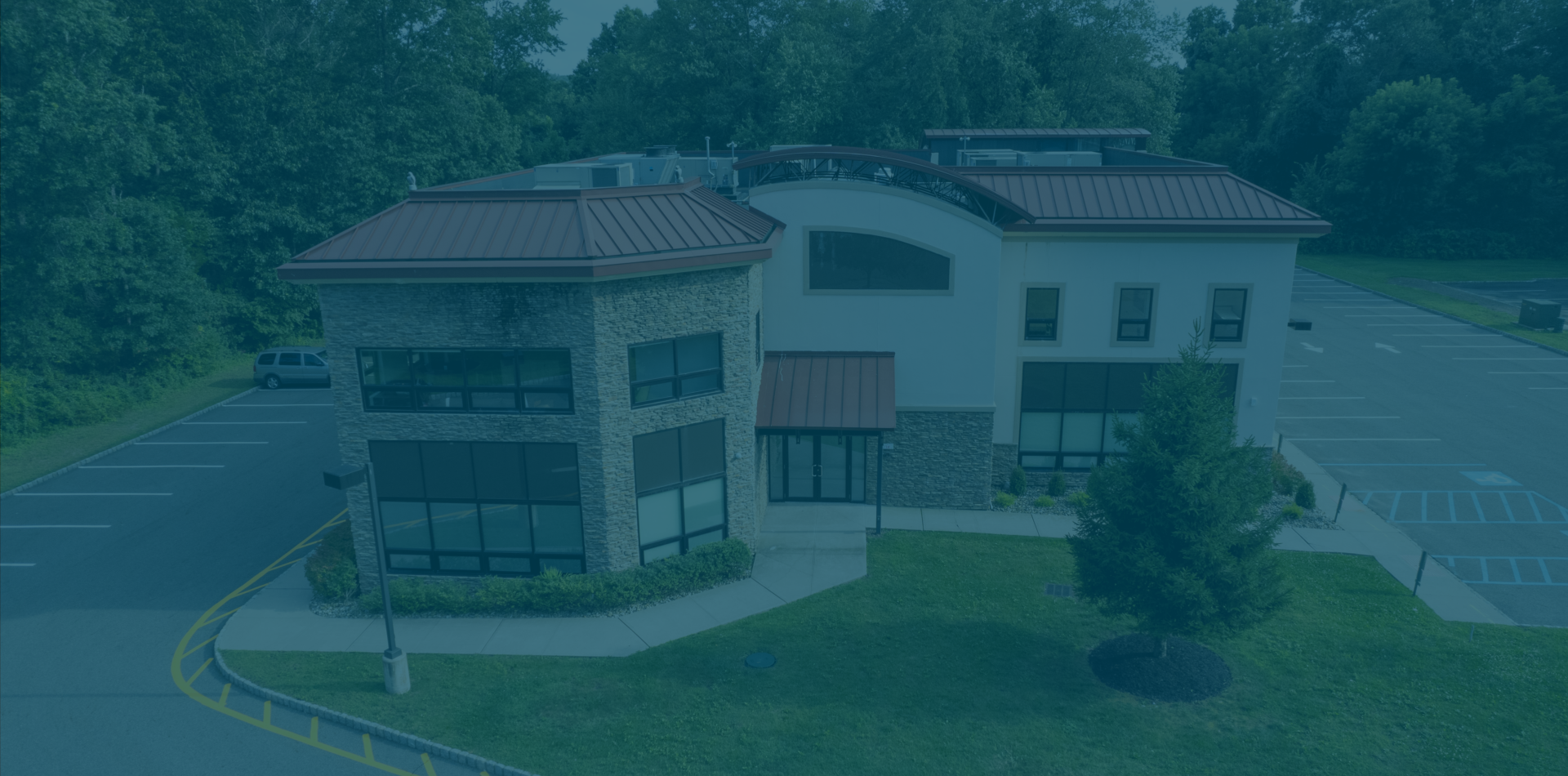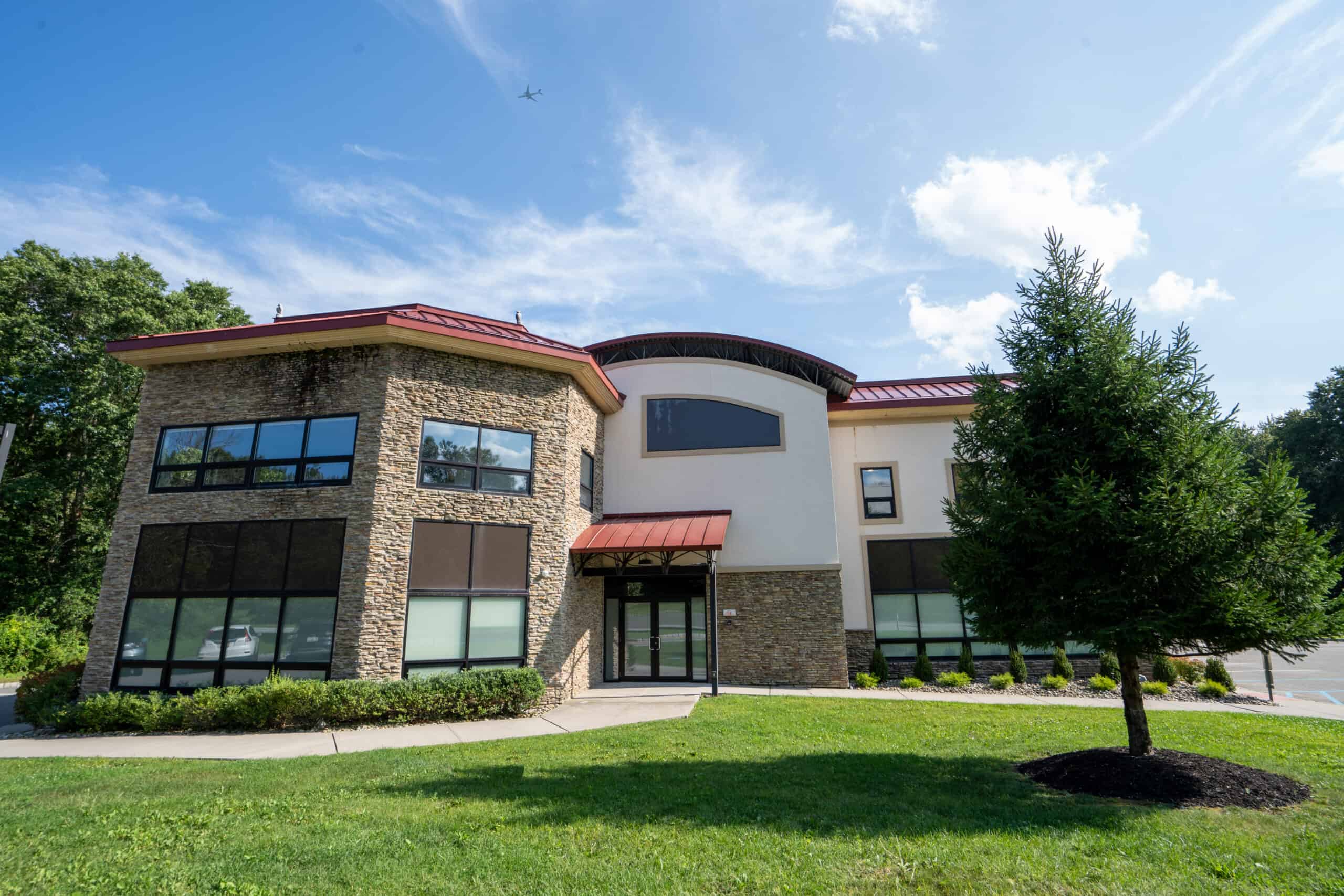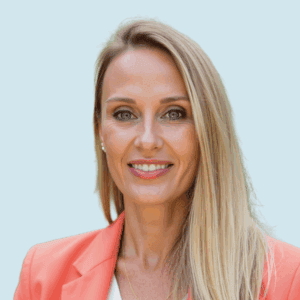Montville Adolescent Center
53 Indian Lane east, Towaco, NJ 07082
OPEN 24/7 | PRIVATE ROOMS | SAME DAY ADMITS
Offering medical detox and residential treatment for those aged 13 to 17, Montville Adolescent Center provides an intimate, boutique-style program with unparalleled support for teens and families. We dive deeper than substance use recovery, addressing the root causes of your teen’s struggles.
Drawing in- and out-of-state clients, our serene, New Jersey facility is a distraction-free safe haven where your child can build trust, relationships, and coping skills, turning chaos into stability.
A fresh start is possible, and we can help.
You’re Not Alone—We’re Here to Help, 24/7
Our compassionate treatment advisors—many of whom have experienced recovery themselves—understand what you’re facing. Call us anytime, day or night, for a free, confidential conversation if you or a loved one:
- Feel lost or unsure where to turn
- Are struggling with addiction or withdrawal
- Want to explore treatment options in a safe, private setting
Hope begins with a single call. Reach out now—your path to recovery starts here.
Comprehensive Adolescent-Focused Treatment
Our unparalleled boutique-style program focuses on both substance use and mental health treatment for adolescents and their families. In effect, we don’t just treat behavrioal issues. Rather, we address the underlying causes of these concerns and empower teens and families to rebuild their lives and relationships from the ground up.
Combining medical detox and residential care under the same roof, Montville Adolescent Center offers a tight-knit community of peers and professionals. And when treatment ends, aftercare planning ensures teens and their families are equipped to handle the new normal together.
Individualized Care
Personal care is paramount. That's why we offer a 1:1 staff-to-client ratio and cap enrollment at 29. This enables our compassionate professionals to offer customized care and individualized support.
Education Coordination
We actively collaborate with each client’s home school district to facilitate attendance credits and ensure alignment with their academic curriculum.
Highest Standards
We are licensed by the State of New Jersey and hold the Gold Seal of Approval from The Joint Commission, the highest level of accreditation for healthcare providers.
Beautiful Facility
Positioned within Towaco, NJ, amid a serene tree-filled landscape, Montville Adolescent Center is specifically built with adolescents in mind.
"*" indicates required fields
Guiding Teens Toward a Brighter Future
Our Approach
At Montville Adolescent Center, we embrace a nuanced and multifaceted approach to substance use treatment that’s specifically tailored for adolescents. Our strategy goes beyond conventional methodologies, combining evidence-based therapies with medical supervision and counseling. This holistic approach was designed to address not just the physical aspects but also psychological and emotional impacts.
Many of our clients struggle with untreated mental health concerns (e.g., anxiety, depression, trauma, etc.), process addictions, substance use disorders, and a variety of other challenges. While Montville Adolescent Center primarily treats substance use disorders, we also tackle complex developmental trauma and co-occurring issues.
Individual and group therapy sessions address age-specific issues, such as the impact of social media, peer pressure, challenging family dynamics, and stress associated with transitions to college or independent living. We help our adolescents gain self-awareness and emotional regulation skills, ultimately fostering independence, lasting motivation, and freedom from the issues holding them back.
Our team includes licensed therapists, seasoned medical experts, and dedicated specialists. Each member brings their expertise and compassion to the forefront, ensuring that every adolescent in our care receives a treatment experience that is as unique as their story.
We delve deep into crafting a personalized recovery journey for each teen, integrating educational support and life skills training. This individualized approach equips our adolescents for a future full of promise and potential.
Our Adolescent Program
Our multifaceted approach is profoundly transformative, focusing on not just the symptoms but also the underlying causes of behavioral health issues.
At the core of our program is a distinctive four-pronged treatment strategy:
- Psychoeducation—We begin with an essential foundation of psychoeducation, teaching our young participants about wellness, addiction, and recovery. This is crucial as many adolescents enter our program without a clear understanding of these critical aspects.
- Cognitive Behavioral Therapy (CBT)—CBT plays a pivotal role in our approach, helping participants reframe and redirect their thought processes, which is crucial in battling addictive behaviors.
- Dialectical Behavior Therapy (DBT)—Given the high prevalence of co-occurring mental health issues such as anxiety and depression in our adolescent clients, DBT is employed to aid in stress tolerance, emotion regulation, and mindfulness development.
- Family Systems Therapy—Recognizing the significant influence of family dynamics, we integrate family therapy to improve communication and interactions within the family unit.
What sets our adolescent program apart is that we view each young person’s journey as distinct. Thus, we tailor our approach to meet their needs, fostering skills and resilience essential for long-term recovery. Our program schedule is robust, blending traditional therapy with creative and engaging activities like music, art, and movement therapy. This diverse approach ensures that therapy doesn’t feel like a chore and instead offers a holistic and enjoyable healing process.
Understanding the critical role of family, we involve loved ones throughout the treatment process, from initial consultations to discharge planning. This ensures a supportive environment for your child post-treatment and helps families adapt to the changes and challenges that go hand-in-hand with recovery.
We accept a broad spectrum of clients, including non-binary and trans adolescents. This commitment to inclusivity extends to our aftercare planning, where we prepare for the client’s departure from day one, ensuring a seamless transition and continued support.
In essence, our program is not just about treating behavioral health concerns. It’s about transforming young lives through a comprehensive, compassionate, and personalized approach that equips them with the tools necessary for a healthier, brighter future.
Medical Detox, Residential Care, and Virtual Treatment
Detoxification
The purpose of our detox program is medical stabilization. Adolescent clients are treated by a team of compassionate medical professionals, who ensure they’re safe and as comfortable as possible during withdrawal.
- Duration: Medical detox typically lasts 3-4 days, potentially longer depending on client need.
- 24/7 medical care with nurses, a medical director, and nurse practitioners.
- Medication-assisted treatment (MAT) as needed to stabilize symptoms.
- Daily therapist or counselor sessions.
- Licensure currently permits 5 beds.
Residential Care
Our goal in residential treatment is to emotionally stabilize our clients enough for discharge to outpatient care, where long-term work occurs. Our program is designed to typically last 28 days, provided a total length of stay is completed. We aim to help teens maximize their experience and reduce the likelihood of needing additional intensive care in the future. If a treatment team isn’t already in place before admission, our case manager will work to find a provider and/or treatment team before discharge.
Montville Adolescent Center provides structure, education, support, medication, and daily monitoring. Teens follow a structured schedule, including a daily medical check-in, two hours of academics, individual therapy, recreation, and various group therapies. Our groups include psychoeducation, coping skills, cognitive behavioral therapy (CBT), dialectical behavior therapy (DBT), creative arts therapy, family therapy, and more.
- Duration: Residential/inpatient care typically lasts 28 days or longer.
- Structured daily schedule, including therapy, creative arts, recreation, mindfulness, and group activities.
- Academic support for 2 hours daily in coordination with the school district.
- Licensure currently permits 25 beds.
Virtual Treatment
Virtual behavioral and mental health care employs telehealth services to provide therapy and support to adolescents in the comfort of their own homes. This innovative approach allows teens to engage in individual and group therapy via secure video calls, phone calls, or messaging, making it more convenient for them to access care without the barriers of transportation or scheduling conflicts. (And without the need for parents to provide transportation to treatment.) Additionally, Guardian Recovery’s innovative app offers a host of features that allow for regular substance use testing, geofencing capabilities, closed social groups, and more.
Family Involvement
Teenage addiction affects the entire family. But rather than focusing on teen behaviors as the problem, we focus on the family—and its strength—as the solution.
As such, communication is central to our care. We foster open dialogue and collaboration via daily updates during detox and scheduled communication every other day during residential care.
Plus, we treat the family, not just the teenager. Our approach involves family therapy sessions, virtual support groups, and psychoeducational programs. These initiatives are designed to repair and strengthen familial bonds and support a sustainable recovery path. In-person and virtual sessions ensure equal access for out-of-state families.
We also provide family counseling and education, helping individuals understand substance use and setting healthy boundaries. Through joint counseling sessions, families can heal together and foster a safe and supportive environment. We orchestrate conferences with the treatment team and family members of our clients at the beginning and at the end of their stay. This way, families have contact with all members of the team and are aware of the planning and strategy for discharge.
Parental Support
At Montville Adolescent Center, we understand that having a teen in an addiction treatment program can be a challenging and emotional journey for parents and families. Experiencing intense emotions, including shame, guilt, fear, anger, sadness, and relief, is common. Acknowledging and processing your feelings is a crucial step in effectively supporting your teen. Regardless of your emotions, remind yourself that your teen is in a safe environment.
To support you through this process, we offer several valuable resources designed to provide guidance, support, and education.
- Community Resources and Referrals to Local Services: Guidance and referrals to local community services and programs that can provide additional support.
- Integrated Family Therapy Sessions: Scheduled family therapy sessions that include your teen, focusing on healing and rebuilding family relationships.
- Family Workshops: Interactive workshops providing tools and strategies for effective parenting during and after your teen’s treatment.
- Peer Support Groups: Opportunities to connect with other parents who have experienced similar challenges, which allow you to share insights and offer mutual support.
Therapeutic Services
The Montville Adolescent Center incorporates a comprehensive and multifaceted therapeutic approach to support adolescent recovery and well-being. This approach includes a variety of evidence-based therapies and activities designed to address the complex needs of adolescents undergoing treatment.
- Psychoeducation
- Dialectical behavior therapy (DBT), including emotion regulation, distress tolerance, and mindfulness development
- Cognitive behavioral therapy (CBT)
- Creative arts therapy
- Individual and group therapy sessions.
- Family therapy and support groups.
Psychoeducation
Psychoeducation is an integral part of the program, providing clients and their families with essential information about addiction, mental health conditions, treatment processes, and strategies for managing symptoms. This educational component ensures that everyone is well-informed about the conditions and the skills they need to manage them.
Dialectical Behavior Therapy
DBT is a central component of the program’s therapeutic offerings. DBT helps teens learn and apply skills for managing emotions, handling stress, improving relationships, and practicing mindfulness. These skills are particularly effective in aiding adolescents in understanding and coping with their feelings and in fostering resilience and emotional stability.
Cognitive Behavioral Therapy
CBT is another cornerstone of our treatment program. CBT focuses on identifying and changing negative thought patterns and behaviors. It empowers adolescent clients to recognize and reframe unhelpful thoughts, contributing to more positive behaviors and coping strategies. This therapy is highly effective in treating a range of issues, including substance misuse, depression, and anxiety.
Creative Arts Therapy
Creative arts therapy provides a nonverbal outlet for expression and self-exploration. Through activities like painting, drawing, music, and drama, clients can explore their emotions and experiences creatively.
Individual and Group Therapy
Both individual and group therapy sessions are offered, allowing teens to receive personalized attention and benefit from peer support. Individual therapy provides a private space for teens to work through personal issues, while group therapy offers a supportive environment to share experiences and learn from others.
Family Therapy
Family therapy is crucial in involving family members in the recovery process. These sessions help families understand the challenges their loved ones are facing and teach them how to provide effective support. Family involvement is essential for successful recovery and long-term well-being.
Amenities
Montville Adolescent Center offers a thoughtfully designed facility to ensure the comfort and safety of its clients. We provide separate floors designated for male and female residents, creating a comfortable and secure environment that caters to the privacy and personal needs of each individual.
A key aspect of our facility’s design is the strategic location of detox beds. These beds are positioned close to the nursing station, allowing for continuous monitoring and ensuring that medical staff can promptly respond to client needs. The nursing team’s immediate availability plays a vital role in delivering effective and compassionate care during this critical phase of treatment.
The program also recognizes the importance of leisure activities and relaxation in the recovery process. To this end, the facility includes a variety of recreational spaces, including a recreational room for various activities, a game room equipped with entertaining and interactive games, and a lounge for relaxation and social interaction. These areas are designed to balance fun, relaxation, and socialization, which are crucial for holistic healing and recovery. Each day, teens can participate in various recreational activities like yoga, music, dance, and workouts in our gym facility at our New Pathways Outpatient Center, conveniently located a few miles away.
Accommodation options are flexible, with both single and double rooms available. This variety allows residents to choose the best option for their comfort and privacy needs. Single rooms offer more privacy and personal space, while double rooms provide an opportunity for companionship and peer support. This choice is particularly appreciated by younger residents, who often find comfort in having a roommate during their stay.
Overall, Montville Adolescent Center is carefully crafted to provide a safe, nurturing, and supportive environment. The thoughtful arrangement of living spaces, coupled with the availability of recreational areas, contributes significantly to the holistic well-being and recovery of its residents.
Ongoing Education
Academics are a fundamental component of our program. We actively collaborate with each client’s home school district to facilitate attendance credits and ensure alignment with their academic curriculum.
We allocate dedicated time each day for academic pursuits, including two hours of structured academic and physical education activities. Our strategy ensures clients don’t fall behind academically, enabling a smoother transition back to their school environment post-treatment.
Admissions and Insurance
The decision to seek treatment for your child is one of the most challenging decisions a parent can make. Along with experiencing a ton of emotions, financial concerns can add more weight to your shoulders, often making the situation feel overwhelming.
You’re not alone.
Guardian Recovery is at your side to support you during this difficult time.
To make your journey as smooth as possible, we accept most major health-insurance plans, and we simplify the insurance and financial component of admissions. Explore our admissions and insurance pages for additional insights.
Admissions Process
At Guardian Recovery, we’re here to guide you every step of the way.
Our goal is to minimize stress during this potentially challenging time, making the transition into our program as smooth as possible.
- Contact Us
Treatment advisors will listen to your story, answer your questions, explore treatment options, verify any insurance benefits, and discuss payment options. The no-obligation conversation is free and confidential. - Participate in a Personal AssessmentWe conduct a brief assessment during our call, enabling us to develop an initial treatment plan and to connect you to a level of care that meets your teen’s unique needs.
- Check InTravel with your teen to your chosen facility, where they can meet the staff, settle in, and participate in a clinical evaluation to further tailor the treatment plan.

Explore The Montville Adolescent Center

Explore The Montville Adolescent Center
FAQs
If your child has been struggling with an untreated behavioral health issue, entering into a longer-term treatment program might be beneficial. Call to speak with an admissions representative, who can answer any additional questions and help determine whether clinical care is necessary. During our initial consultation, we provide a free, no-obligation assessment to determine which level of care (if any) best suits your child and their unique clinical needs.
Any new doctor-approved medications and/or changes to existing medications are discussed with parents or guardians prior to implementation. If your teen already has a psychiatrist or prescribing primary care provider, please sign the ROI to ensure that we can communicate with these individuals during your child’s stay. This allows us to verify past treatment and communicate any medication additions or changes for post-treatment care.
Yes. Family involvement is a pivotal aspect of our treatment process, as the family unit plays a crucial role in the successful recovery and reintegration of our clients. During treatment, we engage families through several key initiatives.
Family involvement starts with the initial consultations and entry conferences, where they are introduced to the treatment plan and the team responsible for their child’s care. This involvement continues with regular updates and meetings, ensuring that families are informed and active participants in the recovery journey. Together, clients and their loved ones work to improve communication, resolve conflict, and set and maintain healthy boundaries.
Additionally, we offer dedicated family therapy sessions, both virtually and in-person, providing a space for open communication and addressing any underlying issues within the family dynamics. Our program also includes family support groups, which provide education and peer support, allowing participants to share their experiences and challenges. Discharge conferences are also held to discuss post-treatment plans and strategies for reintegrating the child into the family environment.
This comprehensive approach to family involvement not only aids in recovery but also fosters a supportive and understanding environment at home, which is crucial for long-term success.
Academics are a fundamental component of our program. To ensure that adolescents maintain their educational progress while undergoing treatment, we actively collaborate with each client’s home school district to facilitate attendance credits and ensure alignment with their academic curriculum. This includes coordination for both general education and special education as needed.
Recognizing the importance of continuing education, we established a robust system to integrate academic learning into the recovery process. We allocate dedicated time each day for academic pursuits, including two hours of structured academic and physical education activities. Our approach ensures that while our clients focus on their recovery, they do not fall behind academically, enabling a smoother transition back to their school environment post-treatment.
For clients who may have been out of the school system prior to entering care, we offer access to an online schooling platform called Advantages. It provides an alternative route to education via a flexible and tailored experience.
This holistic approach to treatment and education underscores our commitment to the overall well-being and future success of our adolescent clients.
Yes, insurance usually covers all or part of detox and treatment costs, thanks to regulations such as the Affordable Care Act (ACA) and Mental Health Parity and Addiction Equity Act (MHPAEA). The ACA requires that insurance companies cover all essential health benefits, including mental health and substance use disorder (SUD) treatment. Meanwhile, the MHPAEA secures your access to addiction and mental health benefits by preventing health insurance companies from imposing unfavorable benefit limitations.
We accept most insurance plans. But the best way to know what is covered and how much treatment will cost is to reach out to one of our admissions counselors. In addition to answering your questions, they can check your insurance benefits to determine roughly how much you’ll pay for care. If you don’t have insurance, additional payment options are available. The call is free and confidential, and you’re under no obligation to choose our treatment program.
Yes. Visitation occurs Sundays from 1 p.m. to 3:30 p.m. Visitors are limited to family members and guardians at least 18 years of age. Prior to visitation, visitors must be approved by clinical staff and must attend a family support session.
Yes, you can mail packages to your teen’s attention at Guardian Recovery Montville Adolescent Center, 53 Indian Lane East, Towaco, NJ 07082. All packages are opened and inspected by staff prior to distribution.
To ensure the safety of all clients, we have Program Agreements and rules that we review with both you and your teen at admission and throughout their stay.
On the day your teen is admitted to medical detox or residential care, their case manager begins planning their discharge to an outpatient program based on their progress, needs, and family resources. While plans change as needed, aftercare planning is a critical and ongoing part of the treatment process.
While Guardian Recovery has several outpatient options for adolescent services, we coordinate discharge planning regardless of the post-treatment services you choose. Discharge planning is discussed during your weekly calls and at your family therapy sessions. We also provide parents and/or guardians with discharge instructions and a discharge summary.
When your child returns home after treatment, it is vital to create a supportive and stable environment to facilitate their continued recovery. Here are some steps to consider:
- Establish Clear Communication: Open and honest dialogue is crucial. Encourage your child to express their feelings and experiences, and listen actively. This helps in building trust and understanding.
- Set Realistic Expectations: Understand that recovery is a gradual process. There might be challenges along the way, so it’s important to set realistic expectations and be client.
- Maintain Consistent Boundaries: Establish clear rules and consequences that are fair and consistent. This helps your child understand expectations and creates a sense of structure.
- Encourage Healthy Habits: Promote a healthy lifestyle through balanced nutrition, regular exercise, and adequate sleep. These habits can significantly impact mental and physical well-being.
- Support Ongoing Therapy and Meetings: Encourage your child to continue with therapy sessions or support group meetings. Ongoing professional support is vital for sustained recovery.
- Stay Informed and Educated: Educate yourself about addiction and recovery. The more you understand, the better you can support your child.
- Build a Supportive Network: Encourage positive relationships with family and friends. A strong support network is essential for your child’s recovery.
- Plan for Challenges: Discuss and plan for potential triggers or challenging situations. Having a plan can help your child feel more prepared to face difficulties.
- Celebrate Progress: Acknowledge and celebrate milestones and progress in your child’s recovery journey, no matter how small they may seem.
- Take Care of Yourself: Remember to take care of your own mental and emotional well-being. Seeking support for yourself can also be beneficial.
Remember, your support and understanding play a significant role in your child’s journey to recovery. Creating a nurturing and positive home environment can make a significant difference in their ongoing success.
Quality treatment centers located in your backyard can be convenient and easy to access. However, they’re also situated near old triggers, which can heighten the likelihood of relapse, particularly in the early stages of recovery. While certainly not required, putting a bit of distance between adolescents and their triggers can be beneficial.
Getting started is as simple as making a phone call. Contact us now for a free, confidential, and no-obligation call to discuss treatment options, insurance benefits, and more. If you choose to proceed, we’ll provide an initial assessment and treatment plan, and we’ll offer explicit directions for check-in and next steps.






